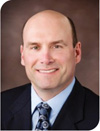Don't Let Election Outcomes Obscure Task at Hand

Policies come and go, but an intense focus on your own organization is the best approach.
The American electorate has voted to renew and extend the contract of their political CEO in Washington in re-electing Barack Obama as president. With so many of our nation’s challenges related to our fiscal issues, America has decided to cast its lot for another four years with an executive who has struggled—so far—to address many of the long-term, fundamental economic challenges we face. The president asked for more time to address these issues—now he has it. So with a second Obama term assured, uncomplicated by the need to run for office again—and with a divided Congress locked into place in Washington for the next two years—what can the business community expect from his presidency?
On balance, America has re-elected someone who believes in adopting economic policies that are more government-centered, rather than more market-oriented, as catalysts for generating economic prosperity and the social benefits that flow from it. It remains to be seen whether his approach can deal with massive fiscal issues around Medicare and other entitlement spending, issues that have been festering for decades but have been
compounded with trillion-dollar deficits in each of the president’s first four years in office.
From the business community’s perspective, beyond any particular policy initiative, the hope is that Obama II will somehow begin to address the amount of uncertainty that has weighed on the business environment during the past four years.
Every business owner wants an environment that facilitates planning and preparation with some element of certainty, but they’re also a resilient lot. That is, even if they don’t have policies in place that explicitly promote growth, they’re willing to test themselves in almost any competitive environment, save one: They are reluctant to play (invest capital in people, machinery, etc.) when they don’t know what the rules of the game are now
or what they will be in the near future. When the business community regains its confidence and some certainty becomes apparent, then spending and hiring will follow and the estimated $2.3 trillion sitting in corporate cash coffers will begin to be invested back into the economy.
The sharp divisions in Congress suggest that no major policy changes will emerge from the legislative arena, as with the Dodd-Frank reforms of the financial services industry or the health-care reforms, both of which came under Democratic majorities before the 2010 mid-term elections and will move forward as planned. Regulators, however, are still writing the new rules stemming from those two significant measures and their ultimate impact is—uncertain. There’s that word again. This will continue to hinder growth in the business environment, even as management teams seek more clarity for their businesses.
It’s important to note that while a president can promote policies to improve the business climate, a commander in chief cannot run your business. Therefore, you should prepare to bring more clarity to your own business by re-examining exactly what your customers want and need, and how they want to be served. Understand not just the need for securing more customers but how you will attract them by differentiating your business.
Rather than spending an inordinate amount of time studying policy makers’ actions, re-allocate more time on the fundamentals of your business: supply, demand, costs and pricing. Prepare for intensifying competition; no matter who is in the White House, the American business climate will always be competitive. Embrace an environment of accelerating technological change. Fortify your relationships with existing clients by increasing your communication with them.
Among President Obama’s most important managerial decisions will be his choices for a second-term Cabinet. Follow that lead: Have you surrounded yourself with the best people possible?
This election may have done little to bring back the certainty needed to make business decisions. But history has taught us that the American people are industrious, adaptable and creative. These qualities, personified and applied daily in millions of enterprises across the nation, have allowed our economy to be amazingly resilient.
Even before any clarity emerges, perhaps the biggest opportunity resides in asking the simple question: “Are we
positioned for growth?” Clearly asking and honestly answering that may provide more clarity and do more to drive your company forward than could any outcome from an election.
The views expressed here are Bill Koehler’s personal views, and are not intended as investment advice.
Bill Koehler is president and CEO of Tower Wealth Managers in Kansas City.
P | 816.751.4295
E | bkoehler@towerwealthmanagers.com
Return to Ingram's November 2012